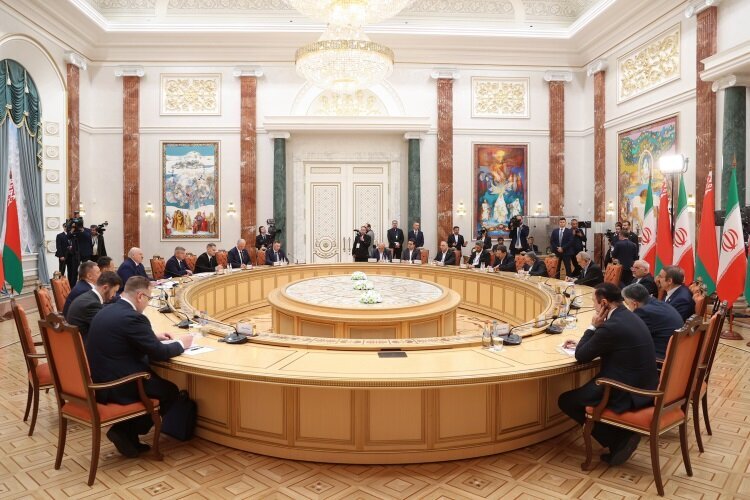
Iranian President Masoud Pezeshkian has hailed the growing momentum in bilateral relations between Iran and Belarus, calling for deeper and more sustainable ties between the two nations.
Speaking at a high-level meeting with Belarusian officials in Minsk on Wednesday, Pezeshkian highlighted the need to expand trade and people-to-people connections, noting that current trade volumes remain modest despite extensive potential on both sides.
“The current volume of trade is insignificant compared to our capacities,” he said. “We must build deeper and more enduring foundations between our peoples.”
During the joint session, Pezeshkian expressed gratitude to Belarusian President Alexander Lukashenko for his outspoken condemnation of recent military strikes by Israel and the United States on Iranian territory and nuclear facilities.
He praised Lukashenko’s remarks at the Eurasian Economic Union summit, particularly his reference to the Chernobyl disaster as a symbol of shared suffering and solidarity with Iran.
The Iranian president pointed out that the Israeli regime and the United States violated international law and the UN Charter by attacking Iran and its nuclear sites, which were carried out in June amid indirect negotiations between Tehran and Washington.
He reiterated that Iran has never initiated war or aggression but will respond decisively to any hostile actions. He warned that such threats are not only directed at Iran but also at the sovereignty of other nations.
Elsewhere in his remarks, Pezeshkian underscored Iran and Belarus’s shared stance against illegal sanctions and their support for multilateralism and national sovereignty. He offered to share Iran’s experience in countering sanctions with friendly nations and proposed a strategic cooperation model similar to Iran’s agreement with Russia, IRNA reported.
He also welcomed Belarus’s recent accession to the BRICS group, expressing optimism that emerging economic blocs like BRICS, the Eurasian Economic Union, and the Shanghai Cooperation Organization will create new opportunities for political and economic cooperation.